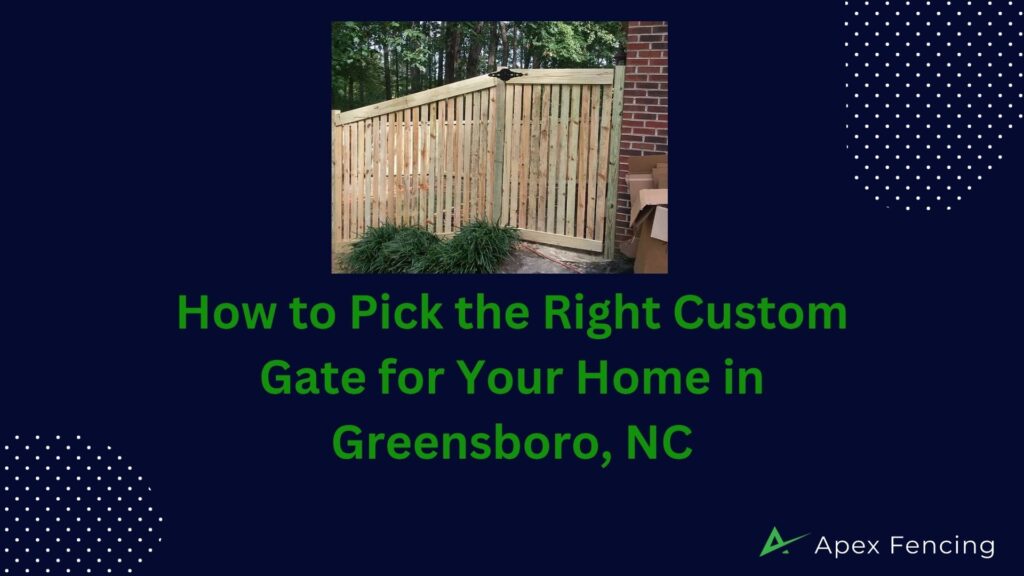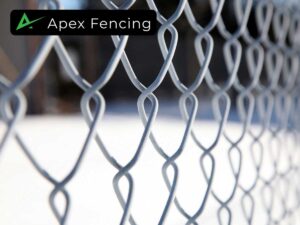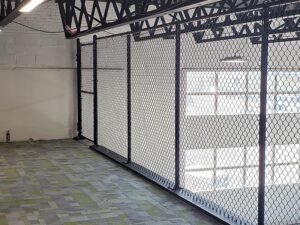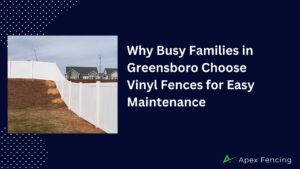Just weigh style, function, and site conditions so you can pick a custom gate that complements your Greensboro home, boosts curb appeal, and improves security; decide between swinging or sliding based on space, and between manual or automatic operation for convenience, checking for proper clearance and power access to avoid hazards.
Key Takeaways:
- Match gate type to space and placement: swinging gates work well for narrower openings, sliding gates suit wider driveways or limited swing space.
- Pick operation based on use: automatic openers are ideal for driveway access and remote operation; manual gates are fine for smaller areas like pools or patios.
- Balance style and security: choose a metal gate that complements your home’s look while meeting your safety and access needs.
Understanding Your Needs
List the functions you expect your gate to serve: driveway access, pedestrian entry, pool barrier, or enhancing curb appeal. Measure your driveway (single-car 9–10 ft, double 16–20 ft) and note setbacks, HOA rules, and power availability. Greensboro’s humid subtropical climate favors corrosion-resistant finishes like powder-coated aluminum or galvanized steel, while historic homes may benefit from wrought iron for period-correct styling.
Assessing Space and Aesthetics
Check swing clearance—an inward or outward swinging gate needs clearance equal to its width—and for sliding designs plan a lateral run roughly equal to the gate span. Slopes over 5% affect operator choice and threshold hardware. Match material and motif to your home: wrought iron for traditional, aluminum for modern low-maintenance looks, and consider stone or brick posts to tie the gate into existing landscaping.
Evaluating Security Requirements
Decide whether you want a deterrent or a high-security installation: 4–6 ft heights offer privacy, while 6–8 ft or more increases forced-entry resistance. Narrow picket spacing (under 4 inches) limits climbing and intrusion. Integrate access control like keypad, intercom, camera, or remote fob, and plan for battery backup so the gate remains operable during outages.
For higher-security setups prioritize material and locking: wrought iron or heavy-gauge steel with welded pickets resists cutting, while electromagnetic locks or mechanical deadbolts add tamper resistance. Ensure the operator has a manual override and complies with safety standards (UL325-type features) to prevent entrapment. Consult your insurer and local codes—your coverage or pool regulations may mandate specific heights, latches, or alarms.
How to Choose the Right Material
Durability and Maintenance
Compare metal and wood by lifespan and upkeep: galvanized steel and powder-coated aluminum often last 20–30+ years with minimal care, while wrought iron delivers strength but typically needs repainting every 3–5 years to prevent rust. Pressure-treated pine or cedar gates usually last 10–20 years with regular staining; expect to stain or repaint every 2–5 years in Greensboro’s humidity, and uncoated steel can show rust within 2–4 years. Service hinges and automatic operators every 6–12 months.
Aesthetic Considerations
Match material to your home’s style: wrought iron and ornamental steel give formal elegance for Colonial or Georgian homes, cedar or mahogany adds warm Craftsman or rustic appeal, and aluminum fits modern minimalism with thin-profile pickets and unlimited powder-coat colors. Add finials, lattice, or solid panels to tweak openness, and pair gate finish with your front-door hardware for cohesive curb appeal.
Consider scale, sight lines, and local rules: gates 4–8 feet high are common—5–6 feet often balances privacy and proportion on Greensboro lots—and 50–70% open designs preserve street views while providing security. HOA or historic-district guidelines may restrict ornamentation or color, so consult local codes before ordering custom scrollwork, and match post caps and hinge finishes (black, bronze, brushed nickel) to your exterior fixtures.
Tips for Selective Functionalities
Match features to daily use: add photoelectric sensors and auto-reverse for safety, choose operators with 100–300 ft remote range for driveway access, specify battery backup or solar to avoid outage lockouts, and pick galvanized or stainless hardware for longevity in Greensboro’s humidity. Recognizing how each feature changes maintenance, cost, and convenience helps you prioritize.
- Safety: photoelectric sensors, mechanical stops, manual release
- Automation: swing/slide operators, keypad, app control
- Power: hardwired, battery backup (24–72 hrs), solar
- Materials: aluminum (low maintenance), wrought iron (style), steel (strength)
Manual vs. Automatic Gates
Manual gates usually keep upfront costs under $500 installed and require no electric operator, leaving you with simple latches but physical operation; automatic systems add operators that commonly cost $800–$3,000 and total installs often land between $2,500–$7,000. Expect DC motors, safety sensors, and keypad or app options with automation, plus routine checks every 6–12 months for smooth operation.
Gate Design Features
Pick height by purpose: 4–6 ft for privacy and curb appeal, 6–8 ft for deterrence; keep picket spacing under 4 inches to limit small-child access and meet common pool-safety guidelines. Powder-coated aluminum resists rust in humid climates, while wrought iron offers ornate detail but needs touch-ups; solid slats can increase wind load by roughly 10–30%.
Match hardware and operator to design: heavy wrought-iron or wide sliding gates often need operators rated for 1,000–2,500 lb and reinforced posts, tamper-resistant hinges, and a fail-safe manual release. Integrate intercoms, keyed entry, or smart locks with 200–300 ft remote ranges; plan for maintenance—wrought iron repaints every 3–5 years, aluminum typically needs only cleaning.
Factors Affecting Cost
Material, size, automation, site prep, permits, and local labor all affect what you’ll pay; steep driveways, long wiring runs, and the need for footings add time and expense.
- material — wood, aluminum, wrought iron
- automation — operator, sensors, power
- site prep — grading, concrete footing
- permits & inspections
Assume that a simple custom gate for your Greensboro, NC home can start near $1,500 while complex installs top $12,000.
Budgeting for Your Gate
Expect typical ranges: $1,500–$4,000 for basic wood or aluminum, $4,000–$8,000 for decorative iron, and $8,000+ for high-end automated systems; set aside a 10–20% contingency for surprises and add HOA or permit fees so your final budget reflects real local costs.
Installation Expenses
Labor in Greensboro runs about $50–$120/hour; simple installs take under a day while complex gates with concrete footings and automation can require 1–3 days and 8–24 labor hours—add $300–$1,200 for footings and $400–$1,500 for wiring and operator hardware.
Permits and inspections often cost $50–$250, and encountering hidden utilities or poor soil can require utility locates or geotechnical work that raises costs; when you request quotes, ask for line-item estimates and confirm whether the contractor includes site visits (typically $75–$200) in the final price to avoid surprises.
Working with Local Suppliers
When you shop locally, start with the Yelp list THE BEST 10 FENCES & GATES in GREENSBORO, NC to identify active installers, then ask for on-site measurements, timelines, and written quotes. Request at least three estimates, proof of insurance and licensing, and photos of comparable projects. Local suppliers often offer quicker repairs and better post-install support, so favor those with recent jobs in Greensboro neighborhoods like yours.
Finding the Right Service Providers
Ask for references from the past 12 months and, if possible, visit a finished installation to inspect welds, post set depth, and gate alignment. Verify liability and workers’ comp coverage, get a detailed scope of work, and compare materials, labor, and warranty terms. Require three comparable written bids and ask about typical lead times—many local shops schedule custom builds within 2–6 weeks depending on parts and finish.
Importance of Customization
Match your gate to site specifics: narrow driveways often need swinging gates while openings over 12–14 feet may perform better as sliding gates if you lack swing room. Account for slope, driveway grade, and traffic frequency when selecting hinges, posts, and an operator. Specify finishes and hardware for NC humidity and insist that the installer size the operator to the gate’s weight to prevent premature failure.
Pick materials based on maintenance and lifespan: aluminum resists rust with low upkeep, steel delivers superior strength with a typical 5–10 year powder‑coat protection, and wood provides aesthetic warmth but needs annual sealing. Give installers precise measurements, photos, and daily vehicle counts so they can recommend hinge spacing, post concrete depth, and an operator rated for your gate’s expected cycles; get maintenance and warranty details in writing before sign-off.
Summing up
Choosing the right custom gate for your Greensboro home means balancing style, function, and site conditions. Sliding gates are best for wide or sloped driveways, while swinging gates suit narrower openings. Homeowners should also weigh manual vs. automatic operation, materials that withstand Greensboro’s humid climate, and security features like intercoms, sensors, and remote access.
By considering space, aesthetics, maintenance, and budget, you can invest in a custom gate that boosts curb appeal, improves safety, and adds everyday convenience.
👉 Ready to upgrade your property with a custom gate in Greensboro, NC? Trust Apex Fencing to design and install gates that perfectly match your home’s architecture, meet HOA and city requirements, and provide long-lasting beauty and security.
📞 Call Apex Fencing today for a free consultation and discover how the right gate can transform your home.






